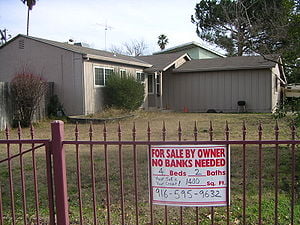 Homeowners facing rising housing costs, unemployment, underemployment and
Homeowners facing rising housing costs, unemployment, underemployment andother financial issues are turning to mortgage modification to
avoid foreclosure . But as many are discovering, modifying a mortgage can not only fail
to stop foreclosure, it can often lead to bankruptcy.
Let’s take look at a few of the facts:
- One of the first things that homeowners are told when they seek a mortgage
modification is to stop making full payments on their mortgage while they
are being approved. The problem with this approach is that when the homeowner
is not approved for the mortgage modification foreclosure is often imminent.
The homeowner must either pay the delinquent payments or face foreclosure.
For many homeowners, it is only a
Chapter 13 bankruptcy that can stop their foreclosure at this point. - During the trial phase of the mortgage modification, many homeowners use
the money they have “saved” to pay for other debts such as
credit cards and
medical bills . But once again, once the mortgage modification is denied they are required
to pay back the delinquent payments, which of course they can’t. If
the homeowner fails to catch up on payments, they face foreclosure. And
since most don’t have the cash, they need to file Chapter 13 bankruptcy
so that they can have the opportunity to catch up on their payments over time. - Finally, most debtors don’t investigate their bankruptcy options while
they are seeking a mortgage modification approval. They simply hope for
approval while they make reduced payments. But what happens is that once
they are denied a mortgage modification, they will need to rush to find
a bankruptcy attorney willing to file an emergency Chapter 13 bankruptcy
filing so that they can stop the foreclosure which can happen very fast
after a modification is denied.
(source: http://www.bankruptcylawnetwork.com)